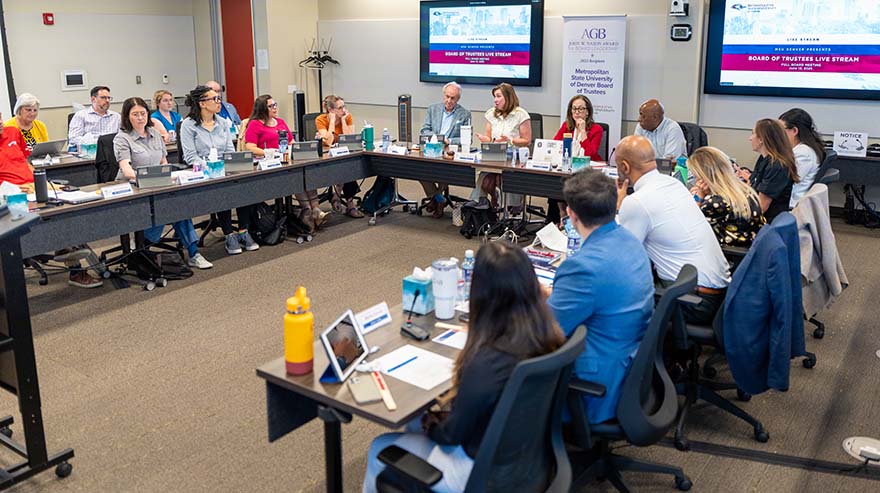More than 200 employees and leaders gathered Monday to discuss the successes and shortfalls of Metropolitan State University of Denver’s Workday implementation. The Workday After Action Retrospective Town Hall centered on an implementation report that will help the University maximize the benefits of Workday, identify and apply best practices and make data-supported recommendations for improvement.
Report highlights pain points and successes
The Workday After-Action Retrospective Report includes candid participant feedback on challenges, impacts to efficiency and effectiveness, technical issues, successes, unforeseen consequences and more, including:
- Inadequate organizational preparation
- End-user training that did not meet needs
- Insufficient communication and change management
- Inconsistent data
Larry Sampler, chief operating officer and vice president for Administration, acknowledged the pain and frustration reflected in the report as well as the data-integrity issues discovered during implementation. While Workday can enhance efficiency and agility and support timely, strategic decision-making, he noted that many business processes developed for Banner didn’t translate smoothly into the new system.
“One of the things that I failed to appreciate was that we had a whole backlog of processes, some of which were 50 years old,” Sampler said. “We were modernizing virtually every business process on campus and at the same time trying to jam them into an unfamiliar and state-of-the-art system.”
User feedback also showed that some business processes have improved since implementation, including:
- Streamlined onboarding and Human Resources processes
- Effective travel management and budget reporting
- User-friendly talent management and benefits tracking
- Collaborative peer support and community-building
- Process improvements and efficient time sheets
- Improved management reporting related to budget-related decision-making
Recommendations for future implementations
The report showed a need for more consistent two-way communication, ongoing user support, and training and resources that align with Workday updates and users’ evolving needs. Data also showed that future change initiatives should consider the impact on the organization’s culture.
MSU Denver would further benefit from focusing on data integrity; reviewing processes for efficacy, efficiency and alignment with Workday capabilities; and addressing the real and perceived needs for users to create workarounds.
Attendee comments and questions
The retrospective team fielded a number of real-time comments and questions from employees. Several attendees doubled down on the need to involve more end-users from the beginning, as administrators often aren’t aware of operations and processes. Others suggested a tiered or staggered timeline that would allow for migration by team or function and build in time for troubleshooting and optimization. Issues were also raised regarding lack of permission/role context in Job Aids. Users expressed a need for less-homogeneous trainings, with options tailored to users’ needs and roles as well as a dashboard for grant management.
Watch the event recording and read the internal report to learn more.







